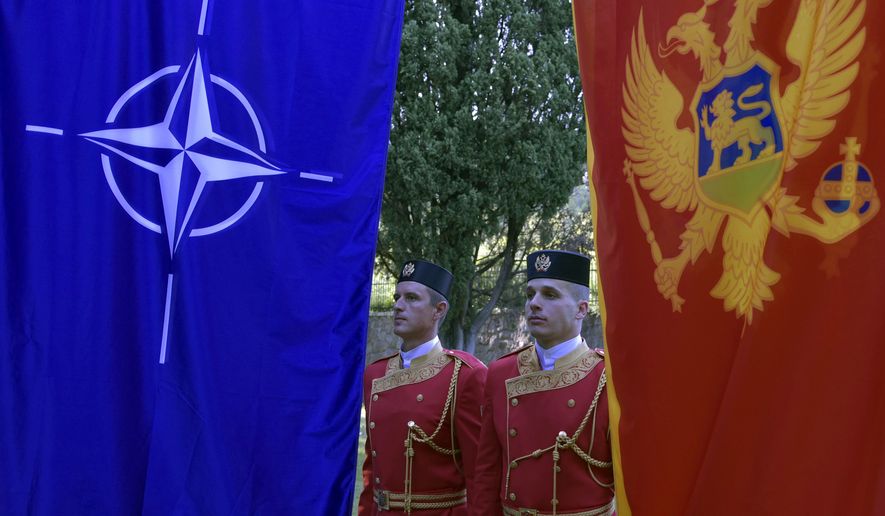The Government of Montenegro issued a response Thursday to President Trump’s implication the country could start World War III.
“Montenegro is proud of its history and tradition and peaceful politics that led to the position of a stabilizing state in the region and the only state in which the war didn’t rage during [the] disintegration of the former Yugoslavia,” the official statement read.
Government of #Montenegro: we are proud of our history, our friendship and alliance with #USA is strong and permanent #USpartnerMNE #WeAreNATO https://t.co/WPn0PMrU0h pic.twitter.com/DOeRutynUm
— Govt. of Montenegro (@MeGovernment) July 19, 2018
The government noted it was the first state to oppose fascism, and touted its commitments to defending Europe and other parts of the world, including alongside the U.S. in Afghanistan.
Montenegro is the newest member of NATO. It officially became a member just over a year ago in June 2017.
“We build friendships, and we have not lost [a] single one, and at the same time we are able to boldly and defensively protect and defend our own national interests,” the Montenegro government said, “In today’s world, it does not matter how big or small you are, but to what extent you cherish the values of freedom, solidarity and democracy.”
The statement concluded by reaffirming that Montenegro and U.S. relations are “strong and permanent.”
The official message came in response to Mr. Trump’s comments during an interview with Fox News’ Tucker Carlson Tuesday night.
The president agreed with the Fox News host that he didn’t understand why the U.S. would have to defend the tiny Eastern European country if it was attacked, a core tenement of the collective defense alliance.
Mr. Trump suggested that Montenegro’s “very aggressive people” could start trouble and “congratulations, you’re in World War III.”
Some critics of the president worry that Mr. Trump’s comments stem from the private discussion he had in Helsinki with Russian President Vladimir Putin
Montenegro was a created out of the wreckage of the former Yugoslavia following the 1990’s war in Bosnia.
Mr. Trump’s comments about Montenegro are the latest critiques the president had for fellow NATO states.
The president met with several other European allies during the NATO summit on July 11. He consistently pressed NATO members to increase their defense spending, though ultimately confirmed the U.S. commitment to the defense alliance at the summit’s conclusion.
Mr. Trump surprised many with his tough rhetoric towards allies like Germany and the U.K. during his European trip.
Despite harsh criticism, U.K. Prime Minister Theresa May seemed to have a good relationship with Mr. Trump during their joint press conference on Friday.
However, German Foreign Minister Heiko Maas was less understanding, saying Monday that his country “can no longer rely” on the U.S.
• Gabriella Muñoz can be reached at gmunoz@washingtontimes.com.




Please read our comment policy before commenting.